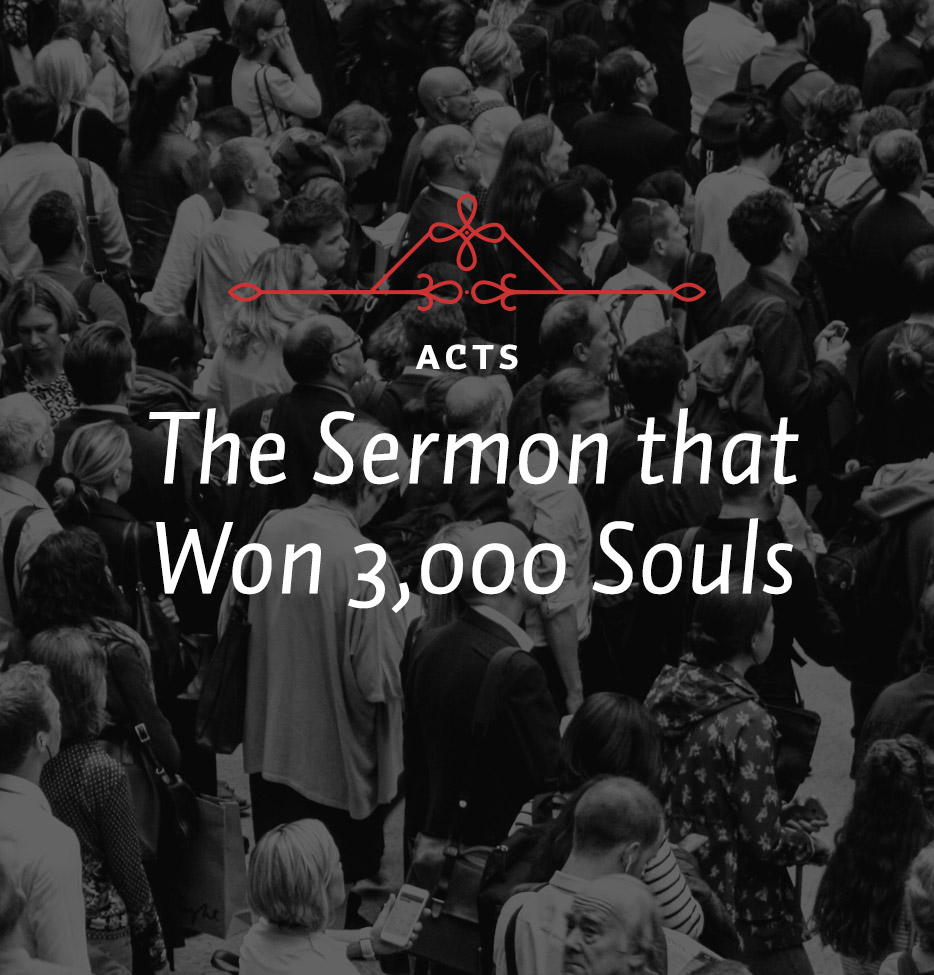It is interesting to think about this sermon’s emphasis. What is it? One way we can answer that question is to count the number of verses given to quotations of the Old Testament and put them against the number of verses that are exposition. If we do that, we have thirteen verses citing passages of the Old Testament, eleven verses of exposition and two verses of application that come at the very end. So we have thirteen verses versus thirteen verses. In other words, the verses of citation and the verses of exposition are about evenly balanced, and perhaps the emphasis even falls on the citations.
I have been to seminary and have taken my share of homiletics courses. I have had people teach me how to preach. They have taught me many useful things. But nobody ever taught me, and, as far as I know, nobody has ever taught anybody else, that half of what a preacher says should be biblical quotations. There are perfectly good reasons for that. Quotation itself usually fails to draw listeners along. Besides, there is no sense quoting verses if those listening fail to understand them, which is especially likely in our biblically illiterate age. People today would not even know why one is quoting the verses. But the point made by the way Peter’s sermon is passed on to us is that the very words of the Bible and the use of the Bible by God’s Spirit are far more important in spiritual work than anything the preacher can say—even if he is an apostle. It is what God says, and what God does with His Word when it is proclaimed or expounded, that is important.
Second, the sermon is Christ-centered. This follows from the first point. If the sermon is biblical and if the Bible is about Jesus Christ, if He is its heart and substance, then a biblical sermon is inevitably a Christ-centered sermon.
Peter’s sermon makes this point in an interesting way. This was Pentecost, after all. The Holy Spirit had come upon the disciples, and Peter had begun his sermon by a great Old Testament quotation dealing with the Holy Spirit. But at the very point at which we might have expected Peter to go on to teach what we would call “a doctrine of the Third Person of the Trinity,” showing who the Holy Spirit is and how He operates, Peter actually shifts ground and instead speaks about the life and work of Jesus.
This is no accident. When the Lord Jesus Christ had been talking to His disciples in what we call “the final discourses,” He told them that when the Holy Spirit came He would testify to Him. Here are the references. In John 15:26 Jesus said, “When the Counselor [that is, the Holy Spirit] comes, whom I will send to you from the Father, the Spirit of truth who goes out from the Father, he will testify about me.” Similarly, in John 16:14 Jesus declared, “He [the Holy Spirit] will bring glory to me by taking from what is mine and making it known to you.” That is what the Holy Spirit did at Pentecost. He came upon the disciples. Peter began to preach, and because the Holy Spirit was guiding, Peter inevitably preached about Jesus.
This is a very helpful principle for dealing with claims we often hear about the Holy Spirit working here or there or someplace else. Sometimes people who are into “signs and wonders” say, “When you see signs and wonders—that is, when there are healings or speaking in tongues—there the Holy Spirit is operating.”
I do not take as rigid a position on this as some of my Reformed brethren who say that the Holy Spirit cannot do any of these things today. There is a tradition in the Reformed churches which says that the miracles ceased with the death of the apostles. According to this view, the miracles were given to authenticate the apostles as messengers from God. God did authenticate them. Their message is preserved in Scripture. Therefore, today we no longer need miracles and, in fact, cannot have them. As I say, I do not take that position. God can do anything He will. If He chooses to do something miraculous, well, so be it. Moreover, I think he does it from time to time. I rejoice in it.
But that is a far different thing than when somebody says, “You can tell that the Holy Spirit is active and present by miracles.” That does not follow. Satan can counterfeit miracles. And whatever the case with miracles may be, it is the teaching of the Bible that we can know that the Holy Spirit is present chiefly because those who profess Christ testify powerfully to Him. I made that point in previous studies. Whenever you find men and women being pointed to Jesus Christ as Lord and Savior, however or wherever that may happen, there the Holy Spirit is at work. Do you seek miracles? That is the greatest of all miracles. It is a miracle of spiritual regeneration.






